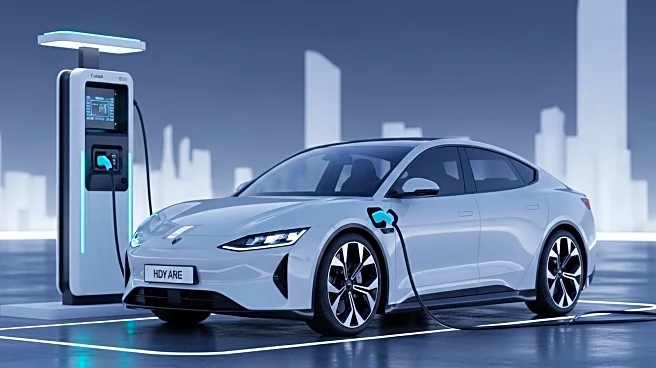What's Happening?
A coalition of organizations, including Transport & Environment (T&E), UNEP, ETSC, CMC, and OPUS RSE, is calling on European lawmakers to address the ongoing impact of the Dieselgate scandal. These groups are advocating for the revision of the 'roadworthiness package' to remove millions of high-emitting vehicles from European roads. They propose systematic fleet screenings, roadside inspections based on real-world emissions, and mandatory fixes or scrappage of high-emitting cars at the manufacturers' expense. Additionally, they urge the EU to halt the export of high-polluting and unsafe used vehicles to other regions, particularly African countries, where over 6 million such vehicles were shipped between 2015 and 2022.
Why It's Important?
The Dieselgate scandal, which involved automakers cheating on emissions tests, continues to have significant environmental and health impacts. Vehicles involved in the scandal emit pollutants up to ten times above legal limits, contributing to air pollution and premature deaths. The coalition's call to action highlights the need for Europe to take responsibility for its environmental footprint and prevent the export of pollution to less wealthy regions. This move could reduce road transport air pollution, which causes approximately 70,000 premature deaths annually. The initiative also aligns with global efforts to transition to cleaner transportation, as some countries are increasingly adopting electric vehicles.
What's Next?
If European lawmakers heed the coalition's advice, they may implement stricter regulations on vehicle emissions and exports. This could lead to increased inspections and mandatory scrappage programs, potentially impacting automakers financially. The decision could also influence global trade policies regarding vehicle exports and encourage other regions to adopt similar measures. Countries receiving these vehicles might accelerate their transition to electric vehicles, reducing reliance on fossil fuels and improving air quality.
Beyond the Headlines
The ethical implications of exporting polluting vehicles to less wealthy regions raise questions about environmental justice and responsibility. The coalition's stance challenges Europe to consider the global impact of its actions and prioritize sustainable practices. This could lead to broader discussions on international environmental policies and the role of developed nations in supporting cleaner technologies worldwide.










